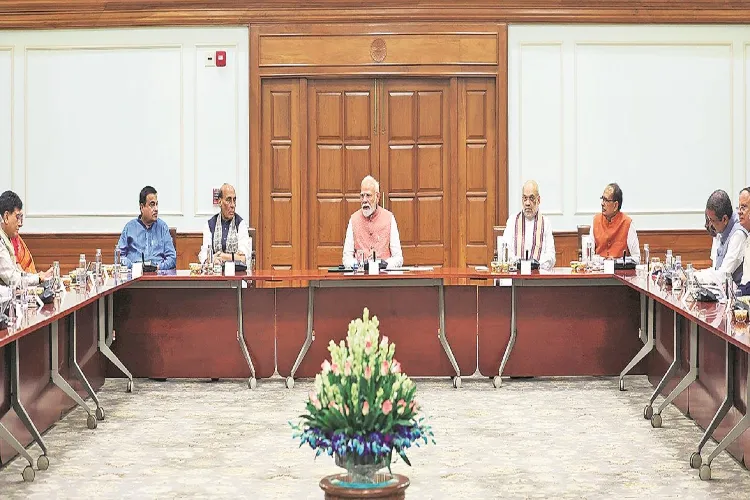
New Delhi
The Union Cabinet, chaired by Prime Minister Narendra Modi, has approved the continuation of the Biomedical Research Career Programme (BRCP), Phase-III.
According to an official release from the Ministry of Science & Technology, this Programme is being implemented in partnership between the Department of Biotechnology (DBT) and the Wellcome Trust (WT), United Kingdom and the SPV, India Alliance for Phase III (2025-26 to 2030-31, with another six years (2031-32 to 2037-38), to service fellowships and grants approved till 2030-31, at a total cost of Rs 1500 crore with DBT and WT, UK contributing Rs 1000 crore and Rs 500 crore respectively.
The Department of Biotechnology (DBT), in alignment with Viksit Bharat goals for fostering skills and innovation, has launched Phase III of the Biomedical Research Career Programme (BRCP).
The program will nurture top-tier scientific talent for cutting-edge biomedical research and promote interdisciplinary research for translational innovation. It will also strengthen systems supporting high-quality research and reduce regional disparities in scientific capacity to create world-class biomedical research capacity with global impact.
The Department of Biotechnology in partnership with the Wellcome Trust (WT), UK, launched the "Biomedical Research Career Programme" (BRCP) in 2008-2009 through the DBT/Wellcome Trust India Alliance (India Alliance), a dedicated Special Purpose Vehicle (SPV), with the approval of the Cabinet, offering research fellowships, based in India, for biomedical research at the world class standards. Subsequently, Phase II was implemented in 2018/19 with an expanded portfolio.
In Phase-III, the following programmes are proposed to be implemented: i) Early Career and Intermediate Research Fellowships in basic, clinical and public health. These are globally recognised and tailored for the formative stages of a scientist's research career. ii) Collaborative Grants Programme, these include Career Development Grants and Catalytic Collaborative Grants for 2-3 Investigator teams for early and mid-senior career researchers respectively, with strong research track records in India, iii) Research Management Programme to strengthen core research endeavours. Phase III will also focus on strengthening mentorship, networking, public engagement, and developing new and innovative national and international partnerships.
Together, the research fellowships, collaborative grants and the research management programme with pan-India implementation will drive scientific excellence, skills development, collaboration, and knowledge exchange. Expected outcomes include training over 2,000 students and postdoctoral fellows, generating high-impact publications, enabling patentable discoveries, earning peer recognition, enabling a 10-15% increase in support to women, 25-30% of collaborative programmes to approach TRL4 and above and an expanded footprint of activities and engagement in Tier-2/3 settings.
Phases I and II positioned India as an emerging hub for biomedical science of international standing. India's rising investment in science and its growing role in the global knowledge economy demand a new phase of strategic effort. Building on the gains of earlier Phases, Phase III will invest in talent, capacity, and translation aligned with national priorities and global benchmarks.
